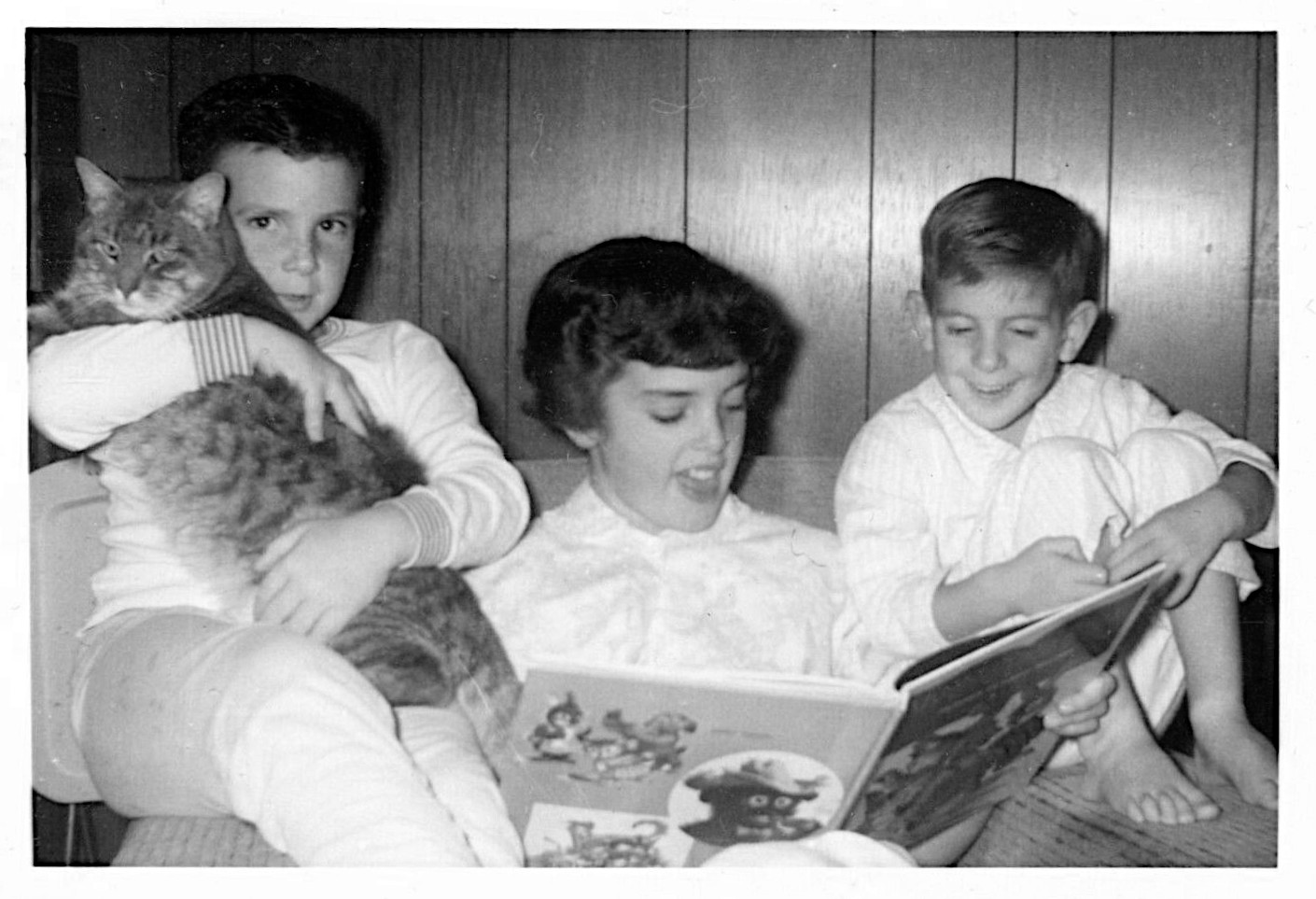Television! Should It Have A Place In The Christian’s Home?
by Paul Wilson

We feel constrained to examine the subject of television in the home, especially as it affects the Christian. With this latest giant of the entertainment world growing rapidly, and with the appeals to Christians to open their homes to this masterpiece of human invention increasing, it seems that the question should be faced squarely.
A question once put to King Hezekiah by the prophet Isaiah may be appropriate in this connection—”What have they seen in thine house?” 2 Kings 20:15. This modern medium of communication will bring an assortment of sights into the home for the mental fare of its occupants and its guests. Will it be to God’s glory? Will it further occupation with heavenly things? Will it be a means to help us grow in the knowledge of our Lord and Saviour Jesus Christ? or will it be one more thing to distract us from the only One who is worthy of being our chief occupation?
Perhaps the greatest challenge video makes concerns the welfare of children. In areas where it is already available, the children in the world have become thorough devotees of this form of amusement. It has a special appeal to the young, and their plastic minds are very easily influenced by it. And what are they seeing with such evident delight?— folly, madness, crime, and moral corruption, among other things. The same things that have poisoned the youth of the country in the picture shows, and brought about much of the juvenile delinquency and lawlessness are now being served hour upon hour, day in and day out, in many homes. This influence will accelerate the coming of the moral conditions in the world similar to those in the days of Noah, and of Lot, as foretold by our Lord (Luke 17:26-30).
A survey in Los Angeles counted “127 murders, 101 ‘justifiable killings,’ 357 attempted murders, 93 kidnappings, 11 jail-breaks,” and many other crimes in just one week in the programs seen in that city. A Chicago survey in December, 1952 counted in four days, “77 murders, 7 kidnappings, 53 shootings, and a total of 216 crimes of violence” on so-called children’s programs. Children saw almost every conceivable method of killing demonstrated. The results of such crimes being enacted constantly before the youth of the land will produce either a frightened, unhealthy state, or a cold, calloused indifference—a cheapening of the value of human life, and a reckless disregard for all virtue. Wil1 anyone dare to say that Satan is not behind all this? He is leading the so-called Christian nations down the road once trodden by the depraved Roman Empire.
A liberal, visual education in sin and lawlessness is being broadcast day and night. The seeds of crime are being sown now in abundance; the reaping time will bring a harvest that men will not know how to handle. Everything is being readied for the final scenes of man’s lawlessness. The red horse of Revelation 6 will bring in a time of bloodshed—peace will be taken from the earth, and men will kill one another.
Christian parents, beware of television for your dear children. You would not think of taking your precious charges from the Lord into the dance halls, theaters, arenas, alleys, and dens of the earth. Shall you bring such sights into your living room? Perhaps it will be said that as they grow up they will meet these things, and that you cannot always shield them. That has a certain amount of truth in it, but have you not a definite responsibility to Him who gave them to you? Their youth is the only time that is yours to help mold them, and to instruct them in the ways of the Lord. Shall these fleeting days he lost? while instead of truth they become acquainted with fiction and fable, crime and horror? You shield their precious bodies from chemical poisons; shall you do less for their impressionable minds?
Stop then, dear Christian, and consider seriously before making such things available to those in your home. You have a more difficult task today than ever before in bringing up your children in “the right ways of the Lord.” Special grace and wisdom will be needed from above. God’s instructions are, “Bring them up in the nurture and admonition of the Lord,” but how can this be done if television is allowed in the home? How can parents teach the ways of the Lord to children while they are being taught all sorts of crime and moral corruption, and the principals of the world.
Let us suppose a case in a home where television is allowed: the children have been drinking in all the hair-raising, breath-taking excitement of a telecast, when the father says, “Turn off the television, and let us read the Word of God.” Now, we ask, are those children capable of sitting quietly and listening to the calm reading of the Word of God? To say that they are would be to display a complete lack of understanding of human nature. They may have to turn off the switch of the instrument, but be assured, that current of thought will not be turned off in their minds.
To bring television into your home is like planting the most noxious and poisonous weed among the choicest flowers and hoping the weeds will not grow. Some of our readers may reply that their children will see these things elsewhere; perhaps this danger can be eliminated or greatly reduced if they are properly instructed in what is pleasing to the Lord. In any event, they can learn that you do not approve of television, and will not allow it in your home. If your neighbor keeps rattlesnakes in his yard, it is no reason for you to do so. It would be folly to keep the venomous reptiles so that the children would learn how to handle them.
If the lawless deeds and foul sayings of the Sodomites vexed Lot’s righteous soul from day to day, what did they do for his children? The demoralizing effect on them was great—some were lost in Sodom, and those who were not became a shame and a disgrace. It is an old story of the parents allowing something that grieves them, while the children go wrong.
The contrast to this baneful influence was found in the plains of Mamre. There Abraham, the friend of God, lived in separation from Sodom, and there he enjoyed communion with God. Would not he have been defiled if the words and ways of the sinners of Sodom had been televised in his tent? Would he then have been in a fit condition to receive the Lord as his guest? And would not his family have suffered also?
Lot got into Sodom by degrees; declension is always gradual. He first lusted after it with his eye, then pitched his tent near it, later got into it—out of his tent and into a house—and finally became a municipal judge, and all to his sorrow and ruin. And will not the television scenes of borderline immodesty (if not worse), with all the defiling conversation, dull the Christian’s senses until at length he comes to not be vexed by the things that would shock anyone of spiritual sensibilities? Let us ask ourselves whether we want to be Abrahams or Lots. If it is the former, then let us not bring into our homes a direct connection with Sodom.
There will not be lacking those who will contend that what we have written is one sided and that there are also good things in video. Recently we had occasion to review a book which ostensibly sought to evaluate the good and bad of television; it was written by Edward John Carnell, Associate Professor of Systematic Theology, Fuller Theological Seminary, Pasadena, California. He found plenty of bad in video, but the good things were the very elements of the world which lies in the wicked one. (How can Christians forget the character of this world?) Concerts, orchestras, religious fiction, and such like are things found on the clean side of the broad road. That road is broad enough to accommodate everything—it has its clean and its filthy side. (And may we add here that we feel religious fiction to be one of the worst of all fictions, for it invariably distorts the Word and gives, in effect, a lie. It is particularly deceptive.)
We presume that Sodom had some good things also—perhaps some things that Lot pointed to with civic pride, but it was all under the sentence of judgment, and was only deluding its populace. By the same token, Cain’s world (Gen. 4) had some good things. This murderer invested it with commerce and industry, and the arts and sciences; but could the children of his murdered brother (if there were such) relish anything of Cain and his world? And this world has murdered the Son of God—your Saviour and mine, fellow Christian. Shall we then relish its so-called harmless attractions? Shall we rearrange our homes to make room for it to move in? Let us not forget that it is stained with the precious blood of our Redeemer, that Satan is its god and prince, and that by these very things he is deceiving men and leading them on to destruction. The “desires of the mind” and the “lust of the eyes”—the better things of the world—are ranked in the Word of God with the grosser things of the “lusts of the flesh” (Eph. 2:3; 1 John 2:15, 16).
After the children of Israel were redeemed by the blood of the lamb, they began a journey to the land of Canaan; and every poor sinner who comes under the shelter of the precious blood of Christ has started on his way to the Father’s house. The Israelites’ journey made them pilgrims in the wilderness, and strangers to all in the land of Egypt. They could no longer enjoy Egypt’s refinements (and it had many) any more than they could serve in its brick-making; they were strangers to the one as well as to the other. And every Christian occupies a similar place here—he is a stranger and a pilgrim, and is on his way to a better land. (May the sight of its glories, and of Him who is its glory, draw our hearts thither-ward.)
Christians still have an old nature that if allowed unjudged will readily indulge in things that are unworthy of Him who has called us. And just as the Israelites lusted after the leeks, onions, melons, and garlic of Egypt when they lost their relish for the manna, so can we enjoy the things of the world when our hearts grow cold toward Him who is the true Manna—”the bread which came down from heaven.” May we sing from the heart these words:
“Jesus Thou are enough
The mind and heart to fill;
The patient life — to calm the soul;
Thy love — its fear dispel.”
The Lord taught His disciples to pray, “Lead us not into temptation”; and the disciples in the garden were told, “Watch and pray, lest ye enter into temptation.” Bold and self-confident, or sadly indifferent, must be the Christian who can place such temptation in his home, neither considering himself, his children, or his guests. It is bringing temptation right in, and deliberately courting its consequences.
Some people think they can control TV in the home. “Let him that thinketh he standeth take heed lest he fall.” We do not believe it can be controlled, but suppose you can control deadly poison, are you willing to take a chance and have it laying around the house, perhaps on the food shelf? Furthermore, your having television may be a snare to others to whom you set an example. Let no man set an occasion to fall in his brother’s way (Rom. 14:13).
We have heard a few loose remarks to the effect that television is like all inventions—radio, automobiles, etc—and that though Christians at first hesitated to accept them, they were finally accepted by all. This is specious reasoning. The world has many inventions that the Christian should not use; for instance, the theater and the picture show have come of age, and are generally accepted by professing Christians, but are they suitable for a child of God? The mere passing of time does not change that which is unsuitable, even though more Christians succumb to the temptation, and forget what manner of persons they are. May God graciously forbid that television should ever be accepted generally among the saints of God!
“Be astonished, O ye heavens, at this, and be horribly afraid, be ye very desolate, saith the LORD. For My people have committed two evils; they have forsaken Me the fountain of living waters, and hewed them out cisterns, broken cisterns, that can hold no water” Jer. 2:12,13.
There remains one more point to be considered; namely, the use of television for religious dissemination. Some contend that it will be a powerful instrument for the spreading of the gospel, but with this we take exception. Will the Spirit of God endorse video as “communicating spiritual things by spiritual means” (1 Cor. 2:l3; J.N.D. Trans.)?
Will not man he preeminently before the video audience? Will it not rather exalt man than honor God? It may gain a large audience, but let us remember that it is not the number of people who listen, nor the cleverness of presentation, but the Word of God in the power of the Spirit of God that alone will accomplish results.
The book we reviewed admitted that the prime purpose of television is to entertain, and it warned those who would use it for religious purposes that they will have to make their presentation attractive or people will switch to something else. It is well know and the author of the book concurs, that religious programs will have to compete with the best of Hollywood and Broadway . What a challenge! But verily true! Did God intend that His solemn Word should be used to entertain people? Far be the thought. Is that the way He had His message presented to wicked Nineveh? Jonah was to preach the “preaching that I bid thee,” and nothing else. Did he have the accompaniment of an orchestra, or the presence of certain celebrities to make it effective? We all know the answer.
Did the Lord Jesus ever use showmanship in His preaching? NEVER, NO, NEVER! And yet, Prof. Carnell suggests that He did. To us the thought is revolting, and Christ dishonoring. When His brethren wanted Him to show Himself to the world, did He accede? No. The Jews could not understand Him because they sought honor from men, and He never did. Think how many times He dealt with souls all alone, and of the times when He cautioned them to tell no man what He had done. If on one occasion He cried publicly in the temple on a certain feast day, it was not showmanship, but doing what He had a word from God to do.
Again, did Paul make the gospel attractive? He said that as he knew the terror of the Lord he persuaded men; did he get a band to help him? He even reproved the public display made by a woman in Philippi, and would have none of it (Acts 16). Did he ever mingle fleshly attractions with the warning to flee impending doom? When he went to Corinth (where they gloried in human erudition), he hid his profound learning. He said he was determined not to know anything among them but Jesus Christ, and Him crucified (1 Cor. 2:l-4)—a stumbling-block to the Jews, and foolishness to the Greeks. The gospel itself was the power of God, and Paul knew it.
Perhaps some will say, But times have changed. That is admitted, but God’s ways and powers have not changed, nor have His divine principles. He never intended His gospel to be adorned with modern inventions to make it palatable. And yet some Christians are willing to add the world’s attractions to the precious glad tidings. We are bold to say, It is not of God. Christians who use devious methods to get an audience are not striving lawfully according to 2 Timothy 2:5. They might as well condone adding the condemned attractions of a condemned Nineveh to Jonah’s message.
We will, however, add one word about God’s sovereignty. He may, if He chooses, use something that a man hears to that man’s salvation, even though it be mixed up with things He cannot approve; but that in no way invalidates the principles set forth above. He is sovereign and can do as He pleases, but we are servants who are to follow the rules. We have heard of people being saved through words spoken by unbelievers—yes, even by infidels—but that does not prove that we should enlist the help of such. Let us remember that God is not dependent on any man, or any group of men, or any invention or innovation to save a soul. We rejoice whenever we hear of a soul that gets saved, whatever the means that were used, but we as instructed in the mind of God must refuse the assistance of carnal means in our gospel work. May God give us to have the balances of the sanctuary with which to properly appraise the things that meet us in the last days. Not everything is edifying, not everything is lawful. We need the anointed eye to discern the things that are excellent, and grace to shun all else. Is not television Satan’s great masterpiece of deception? Does it not combine his stock in trade—”the lust of the flesh, and the lust of the eyes, and the pride of life”—by which he deceives men? The Israelites had “light in their dwellings” while the Egyptians had nothing but darkness; you, dear Christian, are a child of light and your home should be marked by the light of God being there. If you bring in television, you will bring with it the “unfruitful works of darkness.” Beware of the devil’s bait. Resolve with the Lord’s help to keep out that which you know cannot enter your home “to the glory of God.”
“Whether therefore ye eat, or drink, or whatsoever ye do, do all to the glory of God.” 1 Cor. 10:31.


